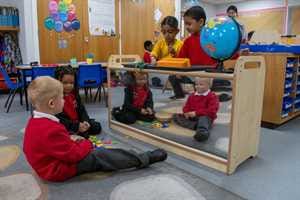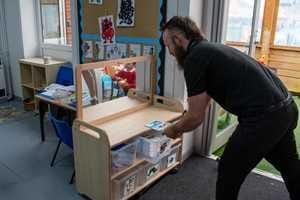
Company News
How to Access Phase 2 School-Based Nursery Funding
The first stage of the government’s plan to deliver 3,000 School-based Nurseries has finished, with hundreds of schools over the country now offering childcare placements!
Due to this success, the Government has announced that phase two of the School-based Nursery Grant will be open for primary schools across England on 24th September 2025. Schools can apply for up to £150,000 each of the £350 million of capital funding that has been allocated to support new or expanded nurseries.
With an application deadline of 11 December 2025 at 5pm, time is ticking for schools to get their request for funds in!
So, we thought it would be helpful to outline how to find out if your school is eligible for the SBN grant, how to apply for your share of the funds, and of course, how we at Pentagon can help you to get your new nursery provision off the ground!

We’d love to share with you a little bit more about who we are and what we do for schools and nurseries - and we’ll come to that later. First and foremost, let’s take a closer look at the key information that you need to know before applying for the new SBN grant funding.
The School-based Nursery Capital Grant Video
We know how hectic an average school day can be, which is why we've created this handy video guide to explain all the information included within this blog!
Make sure to share the video with your colleagues to help them get a quick understanding of everything relating to the SBN grant of 2025/26 today!
What is the SBN Funding For?
The School-Based Nursery (SBN) Capital Grant is a one-time grant available to eligible state-funded primary-phase schools that already offer some early years education, or maintained nursery schools looking to expand their nursery provision on the current school premises.
It’s solely for capital expenditure, to create or expand school-based nursery provision within your primary school group.
The Department for Education has projected that around half of local areas will need to increase their capacity by between 10% and 20%, with around 70,000 additional places and 35,000 early years educators still required to meet demand for September 2025 - when working parents of all children under the age of 5 will be able to access 30 hours of ‘free’ childcare per week.
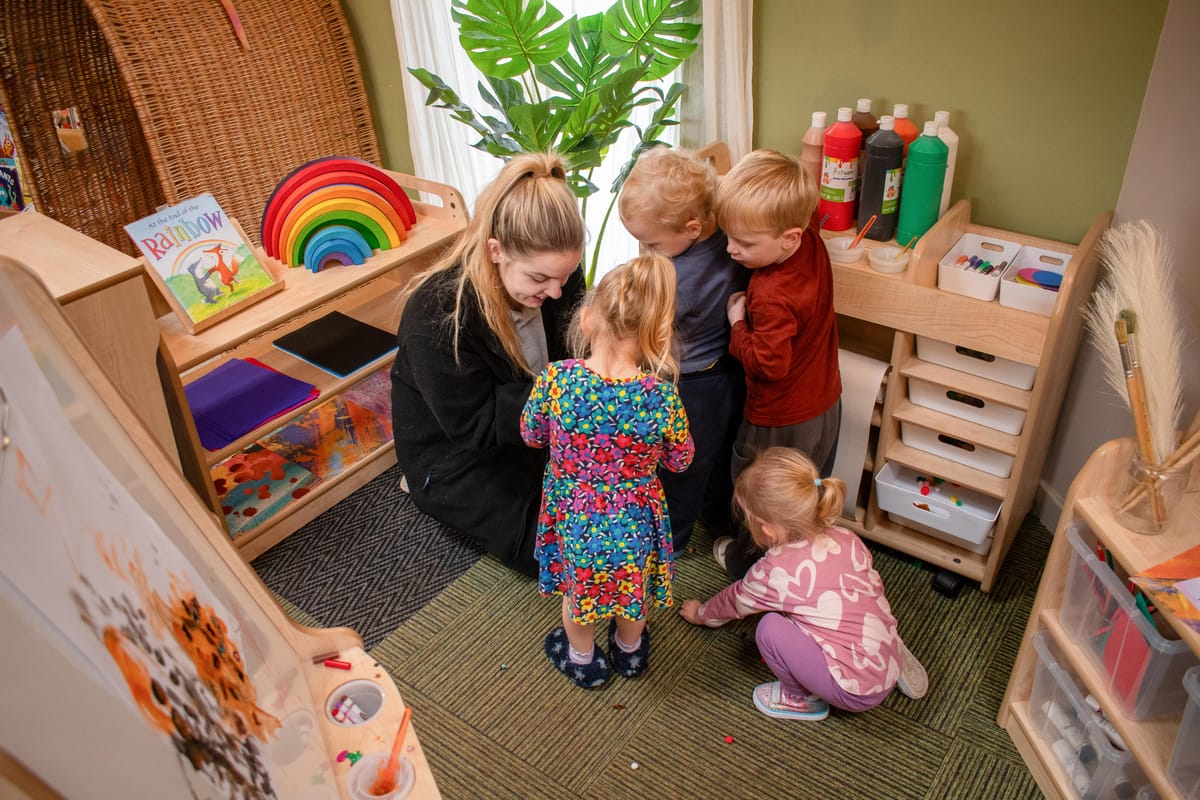
School-based nurseries play a crucial role in the Early Years sector - they made up 22% of registered Early Years childcare places in recent years. SBNs provide a greater share of places in the most deprived areas of the country, and according to government figures, serve a higher proportion of children with Special Educational Needs compared to private group-based providers.
Exclusive to phase two of the grant, the Government has announced how they are wanting more schools from deprived areas to apply for the grant to ensure that children get the best start to life.

The DfE has stated that while all parts of the sector are valuable to delivering the quality care that children need, schools are at the heart of communities. SBNs currently have a proportionally lower turnover, and the benefit of the option to transition staff more easily between nursery, reception and early primary classes. Their aim is to work with the Early Years sector to attract more people to a career in Early Years education.
Speaking of the need for this new funding, Education Secretary Bridget Phillipson said:
All children should have the opportunity of a brilliant early education, no matter who they are, where they’re from or how much their parents earn. New school-based nurseries will provide thousands of additional places where they are needed most, plugging historic gaps and making sure geography is no barrier to high quality childcare.
Providers and schools wishing to apply for the funding are being urged to work closely with local authorities to outline how their individual proposals will respond to local needs, the aim being to break down barriers to opportunity for children across the country.
So that the programme is delivered in a way that continues to support vulnerable children and builds on the provision of the existing market, the funding will be available to projects that are school-run, or delivered by private and voluntary providers, or by childminders.
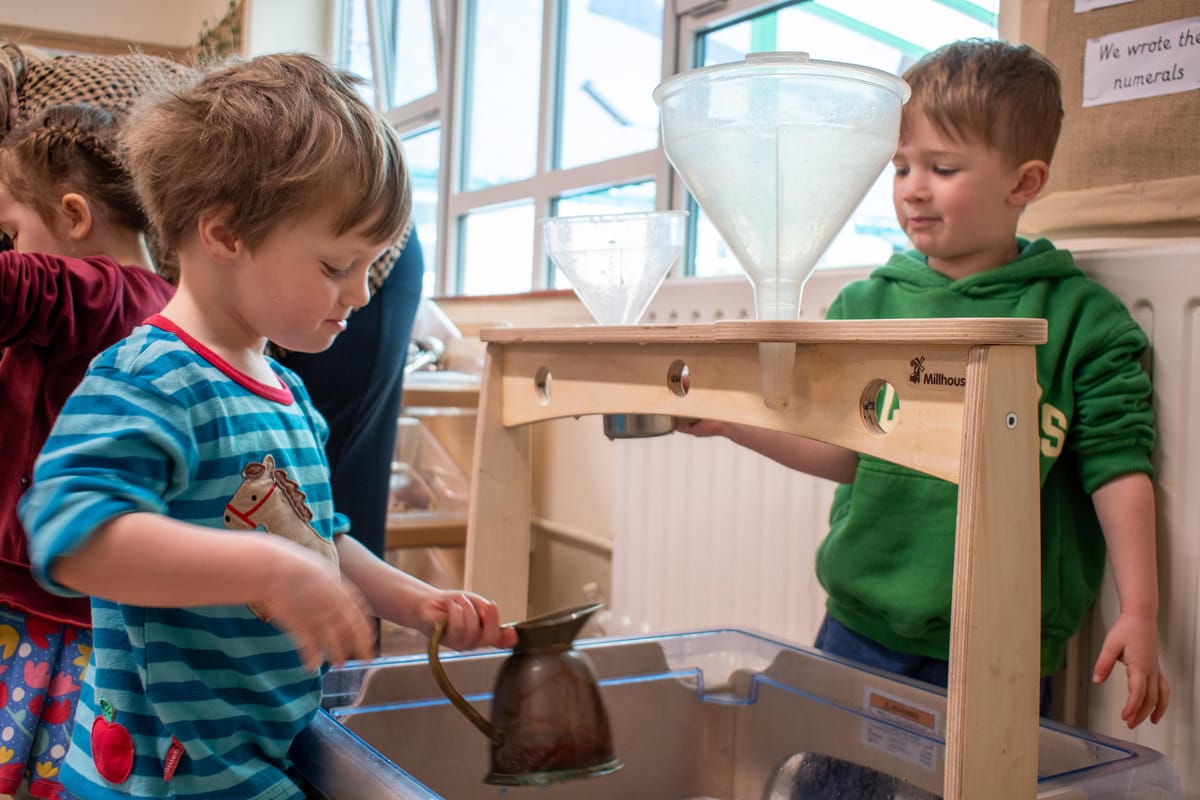
Paul Whiteman, General Secretary of the school leader union NAHT said:
“School-based nurseries play a vital role in the early years sector. It makes sense that where there is spare capacity in schools and demand in the local area, that the government looks to expand school-based provision.
It will be important that interested schools are well supported through this process, both practically and financially, and that the government continues to focus on building a strong and sustainable early years workforce.
We would encourage schools that are ready to expand or open a nursery to apply for this grant, and for those who may be interested in the future, to register their interest with the DfE.”
Who Can Apply for the SBN Funding?
State-funded primary schools in England who already offer some early years education, such as a reception class, can apply for the grant to open a new nursery provision or to expand their existing nursery provision, as well as maintained nursery schools in England seeking to expand their nursery provision on their current school premises.

Unlike phase one of the SBN Funding Grant, it is no longer a requirement to make use of surplus space in phase two. Schools are also encouraged to consider the use of other funding sources alongside the grant to complete their project. We'd recommend doing this as it can strengthen your application by increasing its value-for-money score.
It's important to note that if you were successful during phase one of the SBN grant and recieved the funding, you are not eligible for phase two. However, you will be eligible to work with your local authority as a part of phase three (stay tuned for that phase)!
Special Schools and Pupil Referral Units are not eligible for phase two of the School-based Nursery Grant. There has been no clarification if this will be the case for phase three though.
SBNs can be, for the purposes of the grant:
- nursery classes embedded in a primary school
- expansions to nursery classes on the site of current maintained nursery schools
- nursery units led by governors or academy trusts
- childminders and private, voluntary, and independent (PVI) nurseries contracted to deliver nursery provision on a school site, or operating on a school's behalf
Phase one often led many schools to becoming confused on whether or not they are eligible for the grant. As a result of this, the Government released the following criteria that your school-based nursery project must meet:
- You must not have recieved funding through the SBN Capital Grant 2024-2025 (phase one).
- Your school-based nursery must result in a net increase in the number of childcare places.
- Your school-based nursery project must be deliverable with up to £150,000 of DfE capital funding. However, this can be exceeded if combined with other funding sources.
- Your school-based nursery must be operational and offering new childcare places before September 2027.
- Your school-based nursery must be located on a primary-phase school site that already offers Early Years education, or a part of a maintained nursery school site.
- You must obtain written permission from the relevant freehold landowner to use the land for nursery provision and to carry out the relevant works.
- You must have discussed your project with the Local Authority's Planning, Place and Provision team and the Early Years lead, and recieved formal approval.
If you don't meet one or more of the criteria listed above, the Government recommends that you should register your interest on the online application service.
In addition, your application will be scored against other schools to decide who will be issued a grant. Below is a table that the Government will be using to score your application. We would recommend understanding this table to understand more about your chances of being accepted:
| Criterion | Scoring |
|---|---|
| Disadvantage | Weighted at 50% |
| Local need | Weighted at 20% |
| Value for money | Weighted at 20% |
| Ofsted key judgements | Weighted at 10% |
How Do I Apply for SBN Funding?
All applications for SBN funding must be submitted online via your DfE sign-in account. You can find the full government guidance and online application form.
Before you begin, however, we would recommend filling out the Department of Education's application template, which has been designed to help schools prepare for the application process.
Schools must submit their application, including all supporting documents, via the online application service, by 5pm on 11 December 2025.

As part of your application, you will be asked to provide detailed information about your project plans and how you intend to allocate the funds. The form asks for a brief description (maximum 750 words) of the overall project, the scope of the work, necessary construction and equipment costs, and why capital funding is needed to deliver the project.
Schools are asked to demonstrate that they have considered various options, and that the chosen solution is the most effective and the best value for money.
When you have filled in the application form, you will be asked to upload the following mandatory documents:
- floor plans and scope of work
- photographs
- cost plan or assessed competitive quotation
- summary of consultation and responses (if applicable)
How Can SBNs Spend Their Grant Funding? Are There any Restrictions?
SBNs can apply for up to £150,000 of funding that must be used solely for capital expenditure, to create a safe learning environment that is suitable for nursery provision.
This CAN include:
- Work to ensure a safe construction site including access and egress
- Works required to achieve a planning consent, if relevant, such as tree replacement and enhanced finishes or features
- Removing and encapsulating asbestos
- Reconfiguring existing spaces or expanding and refurbishing existing space to be suitable for a nursery, including installing new access points, walls and locally altering and reconnecting existing services to suit the new layout
- Creation of new space to be suitable for a nursery • Replacing existing or installing new toilet facilities to cater for younger children
- Updating the existing finishes to those suitable for a nursery, e.g. replacing carpet with vinyl in wet play areas
- Installing changing and medical rooms and kitchens that are required for operational reasons
- Updating the door handles, locks, and other fittings to meet safety standards
- Installing intercom and door access systems to allow the nursery to function independently of the main school • Installing an external canopy to allow for outdoor play
- Installing suitable fencing to provide safe and secure external play space
- Purchasing furniture and equipment to allow the nursery to function properly
- Providing ventilation to rooms that have a change of use, e.g. a meeting room into toilets and required to meet legislation
- Payment of professional advice and services, design fees and survey costs that are required to deliver the capital works
All capital works undertaken must be compliant with relevant statutory and regulatory requirements.
Unlike phase one, phase two also has a list of ineligible costs that the DfE won't accept for the grant. Keep in mind that this list is NOT exhaustive, so please seek professional help if you are unsure. Ineligible costs can include:
- Carrying out backlog maintenance or upgrading infrastructure which will not exclusively benefit the new provision
- Planned, preventative and routine maintenance costs
- Works to the school estate that are not consequential to the provision of the nursery
- Revenue items, such as books, paint, pens, craft resources, small toys etc.
- Labour and materials for removals and storage, such as storage boxes, gloves and shipping containers
- Annual software licences
- Temporary accommodation
- Refurbishment of spaces for interim teaching
- Rent service charges
- Internal staffing costs
- Recoverable VAT on costs incurred
- Costs, liabilities or expenditure incurred before the SBN Capital Grant launched
- Costs arising where scope of the project changes, and these have not been agreed with the DfE
- Costs incurred by academies to update their funding agreement.
The DfE will only fund the amount requested on your bid application form up to £150,000 - but schools ARE allowed to use additional funding sources alongside the grant to complete their project.
The DfE has highlighted the importance of thoroughly assessing the suitability and condition of your school grounds, including evaluating whether the current facilities meet the needs of the proposed nursery and if they can be adapted effectively.

As part of this, schools need to consider factors such as value for money, structural integrity, location on the school site, accessibility, and the potential for creating a conducive learning environment for children in early education, in line with the Early Years Foundation Stage statutory requirements.
This is where we can help you! We offer a free on-site planning and design consultation with one of our expert education consultants as standard for all of our potential customers - if you would like us to come and see you, please do Get in Touch and we’ll be there at a time to suit you.
When Should I Apply?
The time is now! The application window opened on 24 September 2025 at 10am, and will close at 5pm on 11 December 2025.
Unlinke phase one, phase two does not require applicants to consult local stakeholders about the project, unless
- a maintained school will be making a significant change as a result of the school-based nursery project. For more information on what classifies as a significant change, please read the "Making significant changes ('prescribed alterations') to maintained schools" guide.
- an academy school will be making a significant change as a result of the school-based nursery project. For more information on what classifies as a significant change, please read the "Making significant changes to an academy" guide.
If you believe that you are effected by the significant changes document, then please make sure that you start your application as early as possible, as consultations with stakeholders can often take 3-4 weeks.
If you are a MAT, you may need to speak to the DfE directly to explain your current situation. MATs should also start the process early to avoid any sudden disruptions.
Project Timelines
All projects must aim to be operational by 1 September 2027, with project timelines specifically needing to factor in time for:
- consulting with the local authority and/or any local interested parties on the project proposal, if required
- obtaining any necessary approvals and consents for an operationally ready learning space
- ensuring procurement complies with public regulations and your organisation’s policies
- checking the suitability of technical advisors or contractors, including their experience in the education sector, site staff experience, financial health, and safety record
- acquiring quotes and plans from companies involved in the project
- intrusive surveying of building elements like services, structure, and asbestos
- managing health & safety requirements at each stage
The Dfe is expected to notify schools of the outcome of their application, with grant letters issued to successful bidders, during April 2026.
If Successful, Is There a Deadline for Spending Funds Granted?
Yes! All grant funding awarded must be spent by 1 September 2027. The DfE has stated that if the funded activities are not completed by 1st September 2027, it reserves the right to exercise clawback proceedings.
How Pentagon Can Help to Establish Your Outstanding Nursery Provision!
Having access to a great outdoor play and learning environment is absolutely essential for nursery-age children, and forms one of the cornerstones of every good nursery provision.
Daily access to fresh air and nature, with opportunities for young children to be physically active, to develop and learn new skills, to explore, to learn how to interact and socialise with others, and of course to be free to play, is paramount.
For many children, their nursery environment is their main point of access to regular outdoor play. And so a nursery’s outdoor space is a vital consideration when it comes to creating a conducive learning environment for children in early education in line with the EYFS statutory requirements.
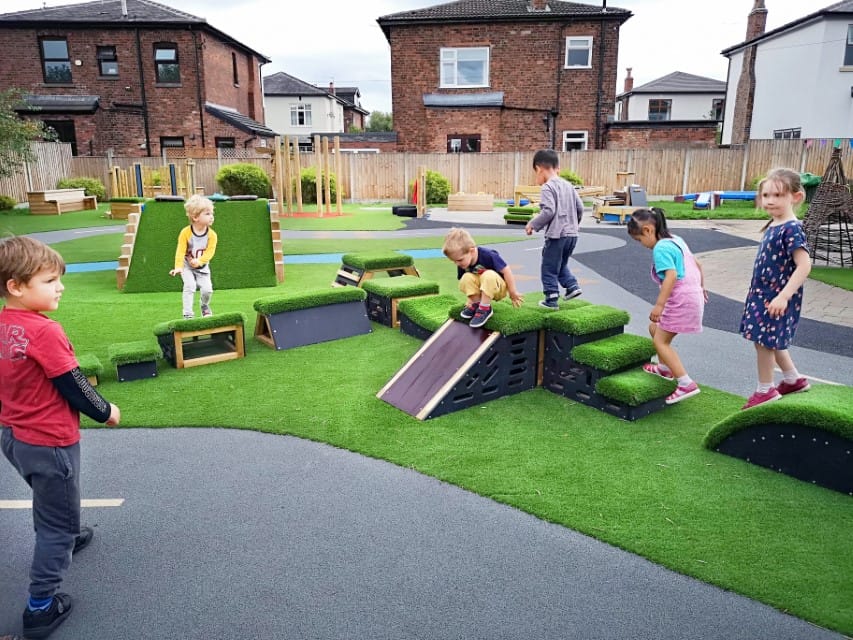
We have been working with primary schools and nurseries across the UK to deliver outstanding outdoor learning environments for over 25 years.
As the UK’s number one school playground equipment specialist and suppliers of the highest-quality early years furniture, we have a broad depth of experience when it comes to helping nurseries to plan and implement their indoor and outdoor learning programmes - ensuring that their spaces are capable of supporting all of the EYFS areas of learning, and make the very best use of available space year-round.
We have everything that you need to create the ideal, maximum value for money, robust, high quality and sustainable indoor classroom and outdoor play and learning environment for your new or expanding nursery.
Our Extensive Range of Playground Products
We specialise in All-Weather Playground Surfacing suitable for little legs to crawl, climb and bound around on whatever the weather!
We design, supply and install practical and beautiful Outdoor Classrooms and Canopies for all your indoor to outdoor free-flow needs.
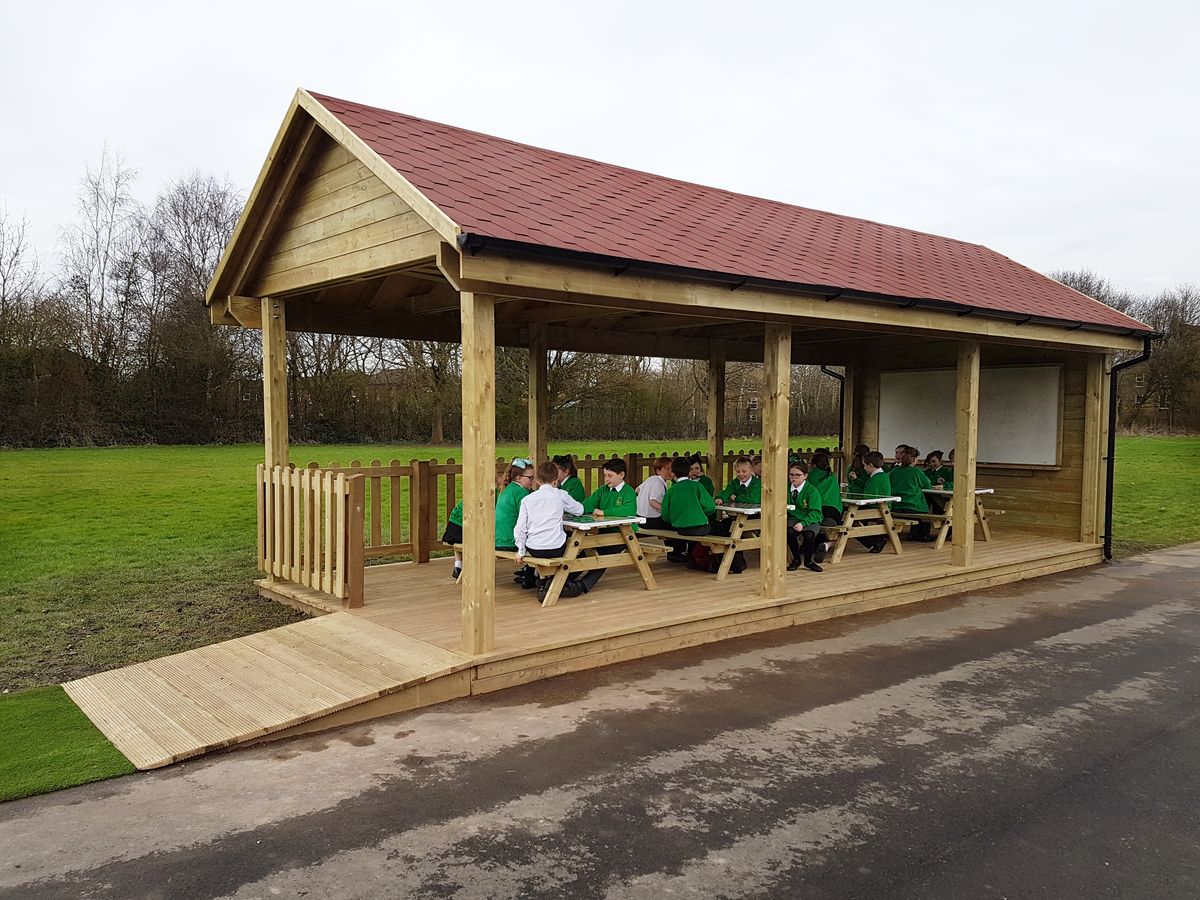
Amongst some of our favourite nursery products, we have a fabulous range of low-level active play and climbing equipment for excellent physical development, and a unique and popular collection of easy-maintenance messy and sensory play equipment for inquisitive little hands and minds to explore!
Our Range of Nursery Classroom Furniture
We are now also working in collaboration with Millhouse Early Years Furniture Solutions to bring you all the classroom furniture that you could possibly need for your new nursery - all available for fully-assembled delivery simply by ordering from our Online Shop!
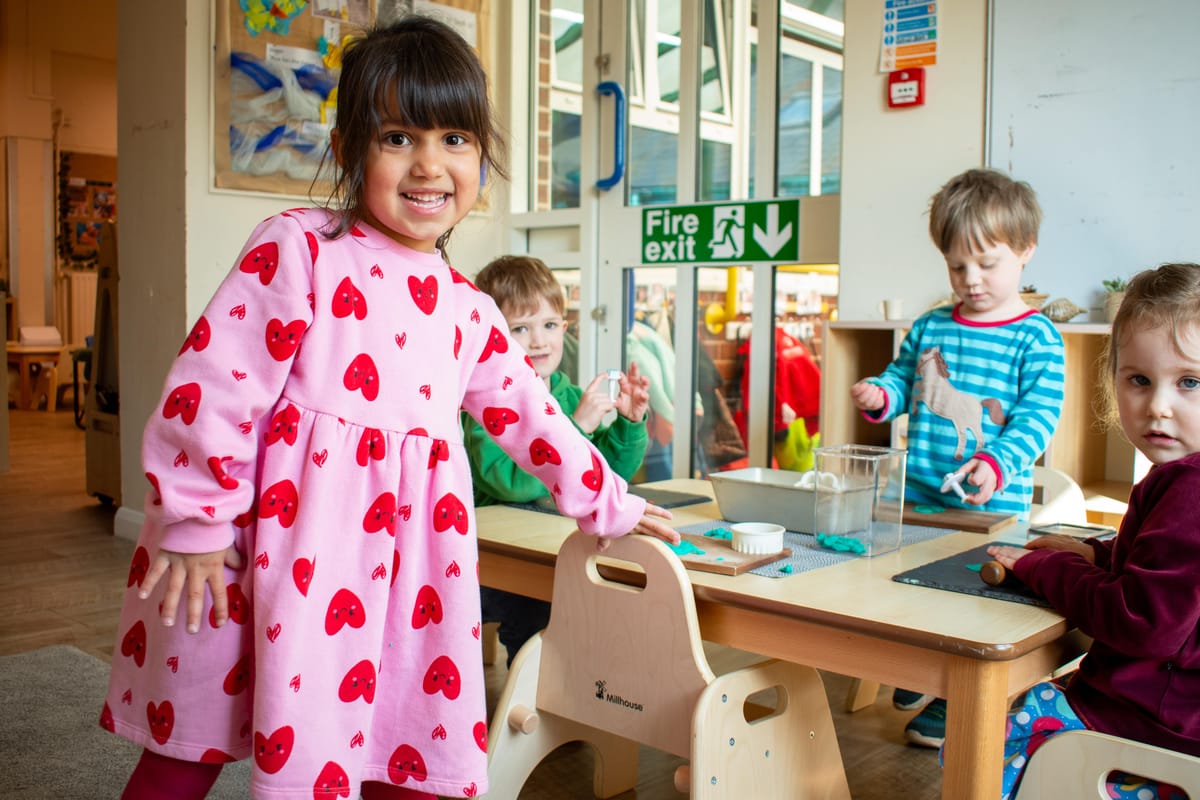
Offering over 400 high-quality and durable pieces of furniture, you can easily transform a space into a vibrant hub for learning and laughter! Our Digital Sales team are happy to speak through our entire range with interested customers to help you create the indoor area of your dreams.
Once you have a rough idea of what you want, our service doesn't stop there. Not only will our team help you create an accurate costing sheet that the DfE will approve of, but we will also generate stunning 3D visuals that can be shared with your local community and the DfE to assist with the application process.
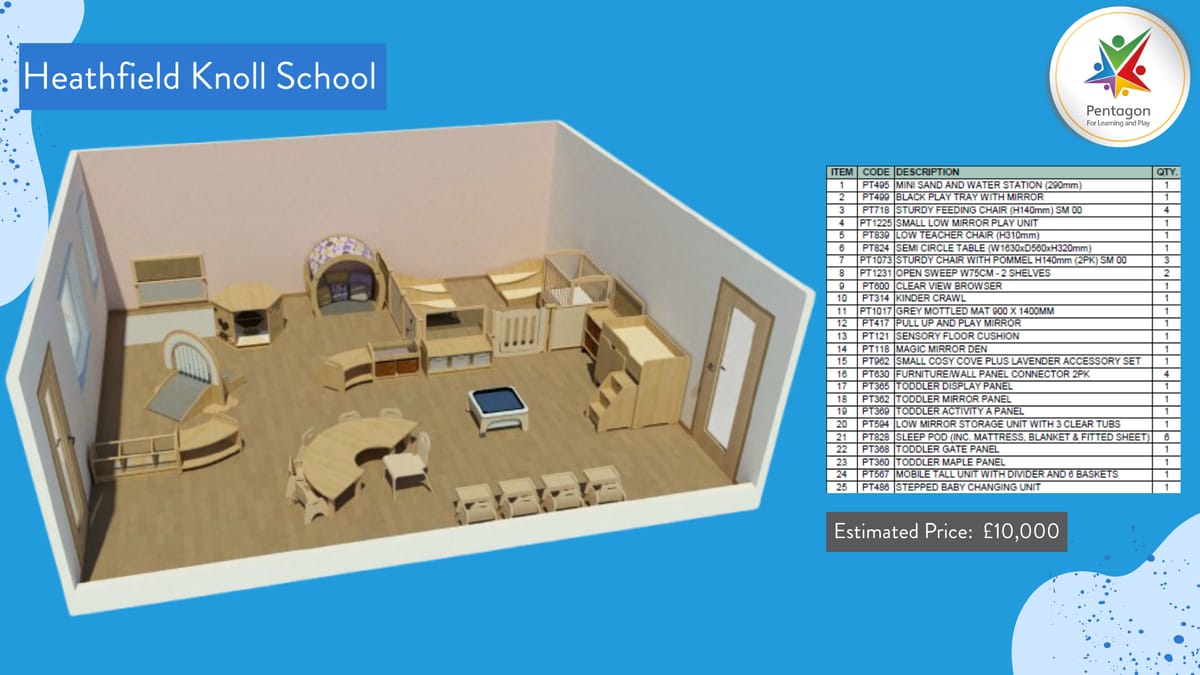
Not only will you get access to all of these exclusive benefits, but we'll also ensure that you always feel supported by checking in with you every so often to ensure that you're still happy with your investment. Unlike other companies, we like to see our clients as family, and we'll make sure to always be on hand for help.
Our Depth of Experience and Project Management Service
We’re absolutely here to help you along the way. With our extensive experience working within the education sector, we understand individual challenges that schools and nurseries face when it comes to delivering projects, and within specific timescales.
We allocate a dedicated playground consultant to work with you and your nursery, from the first free on-site consultation, through concept and design planning to completion - and we like to stay in touch with our aftercare service as standard to ensure that your playground is exactly as you want it to be.
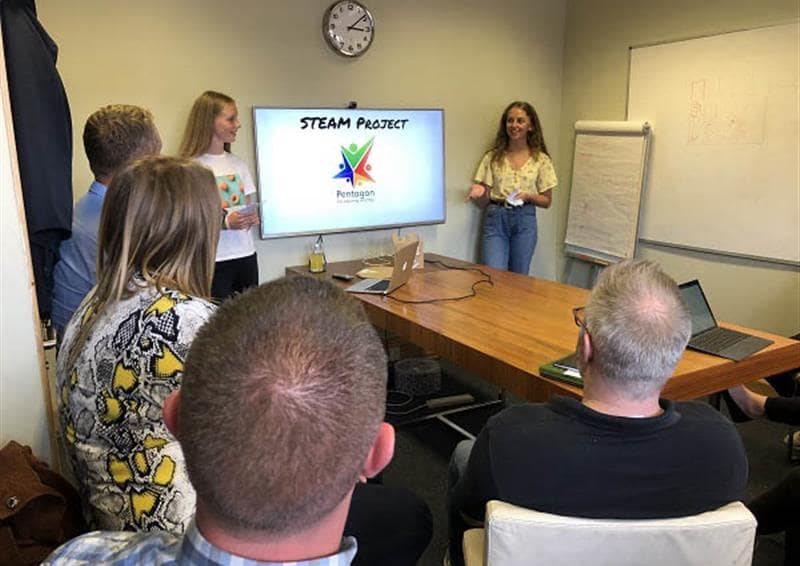
Expert, Value for Money Playground Installations
Demonstrating best value for money is going to be a key part of your SBN Grant application. We are experienced in advising on best-use of outdoor spaces for year-round play and learning to suit an individual school or nursery’s specific needs and requirements, taking into account factors such as landscape and local geography too.
We have a proven track record of delivering the best value for money for our customers - you can see what they have to say and take a look at some of our exciting nursery-based outdoor learning projects.
Guarantees and Regulatory Requirements
All of our playground products come with guarantees, and we are well-versed in the rules and specifications around compliance with statutory and regulatory requirements - this is as crucial to our business and our installations as it is to your nursery.
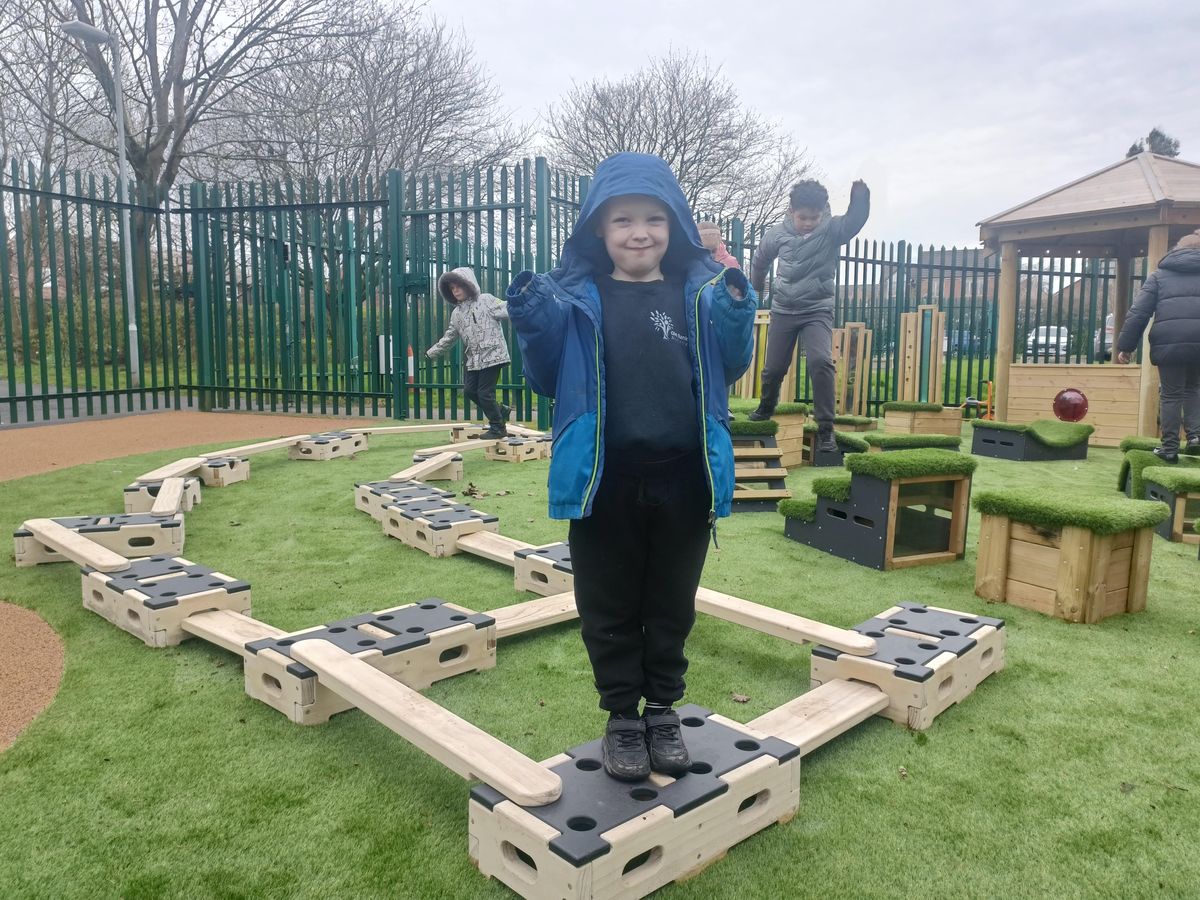
We can help with providing your breakdown of project costs and plans required as part of your grant application. We will provide comprehensive overviews and detailed quotes for your indoor nursery or playground project, along with 3D visualisations, and we always communicate our proposals clearly and promptly.




